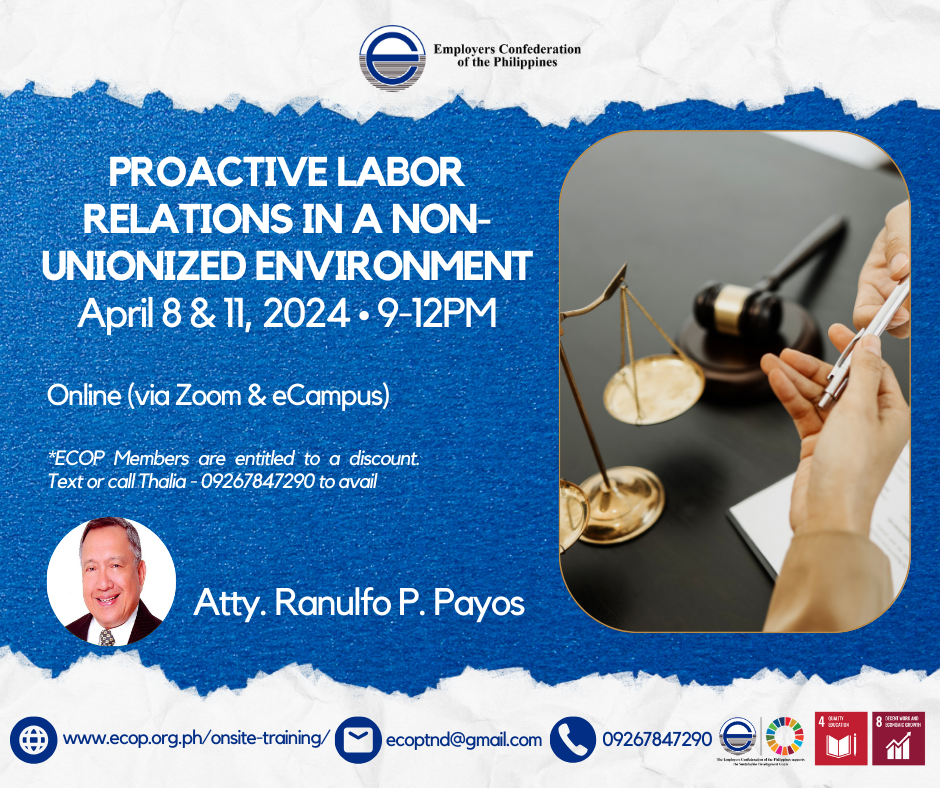Employers are strongly against legislative measures that mandate across-the-board excessive wage increase, saying any unjustified adjustment will harm particularly small businesses, which are the backbone of the Philippine economy.
“Increasing and expanding the benefits of those that already have jobs will tend to neglect and worsen the condition of the unemployed and underemployed sectors of the society,” Employers Confederation of the Philippines (ECOP) president Sergio Ortiz-Luis Jr. said during the 27th Metro Manila Business Conference.
Ortiz-Luis Jr., also president of Philippine Exporters Confederation, Inc., noted that the minimum wage should not be equated with living wage, but rather consider the employers’ capacity to pay.
He likewise expressed an aversion to legislated national minimum wage and the abolition of the Regional Tripartite Wages and Productivity Boards (RTWPB).
“Removing the regional minimum wage will scare investors away from the provinces, compromising our thrust to decentralize and spread economic activities to the countryside,” he added.
Ortiz-Luis Jr. further said wage determination should be the function of the RTWPBs, which were created through Republic Act No. 6727 or the Wage Rationalization Act, and not of Congress.
These Boards, he said, are in the best position to identify the rates for they know the economic and business realities in their respective jurisdictions.
“The law even promotes collective bargaining as the primary mode of settling wages and other terms and conditions of employment,” he added.
Apart from wage setting, Ortiz-Luis identified security of tenure as another most contentious issue included in the legislative agenda.
The security of tenure bill was recently passed by both Houses of Congress based on the Senate version (Senate Bill 1826) following the certification of the bill by the President as urgent.
“It has always been our stand that this bill is not necessary and will only worsen unemployment and underemployment,” he said.
While security of tenure is a constitutionally guaranteed right of workers and the Labor Code recognizes this, Ortiz-Luis Jr. noted that the workers’ right to security of tenure is “not absolute”, especially if the employee is no longer performing.
He said the law provides that employers have the power to dismiss an employee based on just or authorized causes subject to observance of due process.
“Let us decriminalize our labor laws. This is a disincentive to investment. Let us not intimidate and threaten investors, both existing and prospective, by putting punitive sanctions in our laws,” he added.








